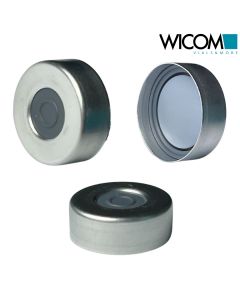Crimp Caps
- Packaging Unit PK/100€44.90 Bulk price €36.90
- Packaging Unit PK/100€65.00 Bulk price €56.00
- Packaging Unit PK/1000Special Price €102.30 Regular Price €112.97 Bulk price €95.70
- Packaging Unit PK/1000€37.80 Bulk price €27.80
- Packaging Unit PK/1000€37.80 Bulk price €27.80
- Packaging Unit PK/1000Special Price €27.90 Regular Price €29.00 Bulk price €19.90
- Packaging Unit PK/100€49.50 Bulk price €42.50
- Packaging Unit PK/100€50.60 Bulk price €43.80
- Packaging Unit PK/100Special Price €88.90 Regular Price €89.00 Bulk price €79.90
- Packaging Unit PK/100€49.25 Bulk price €29.90
- Packaging Unit PK/100€59.00 Bulk price €39.80
- Packaging Unit PK/100€59.00 Bulk price €39.80
- Packaging Unit PK/100Special Price €45.60 Regular Price €54.20
- Packaging Unit PK/100€42.90 Bulk price €35.60
- Packaging Unit PK/100€38.85 Bulk price €32.60
- Packaging Unit PK/100€83.70 Bulk price €73.90
- Packaging Unit PK/100€32.55 Bulk price €25.83
- Packaging Unit PK/100€33.81 Bulk price €23.80
- Packaging Unit PK/1000€304.50 Bulk price €256.00
- Packaging Unit PK/100€50.00 Bulk price €41.87
- Packaging Unit PK/100Special Price €30.98 Regular Price €37.28 Bulk price €27.86
- Packaging Unit PK/100€33.60 Bulk price €24.90
- Packaging Unit PK/100€44.43 Bulk price €38.90
- Packaging Unit PK/100€44.90 Bulk price €36.30
- Packaging Unit PK/100Special Price €14.10 Regular Price €15.10 Bulk price €12.90
- Packaging Unit PK/100€42.00 Bulk price €36.90
- Packaging Unit PK/100€9.93 Bulk price €7.25
- Packaging Unit PK/100Special Price €21.90 Regular Price €24.99 Bulk price €14.30
- Packaging Unit PK/100Special Price €29.98 Regular Price €33.18 Bulk price €20.90
- Packaging Unit PK/100€30.87 Bulk price €19.90
- Packaging Unit PK/100€30.87 Bulk price €19.90
- Packaging Unit PK/1000Special Price €208.00 Regular Price €278.67 Bulk price €138.90
- Packaging Unit PK/100€38.00 Bulk price €30.50
- Packaging Unit PK/100Special Price €19.18 Regular Price €22.37 Bulk price €11.30
- Packaging Unit PK/100Special Price €18.08 Regular Price €20.86 Bulk price €14.39
- Packaging Unit PK/100Special Price €18.08 Regular Price €21.90 Bulk price €14.39
What are Crimp Caps?
Crimp caps, also known as crimping caps, are used together with a rubber stopper or a septum, usually coated with PTFE, as part of the closure of a sample vial: with the aid of the crimp cap, the stopper or septum is attached to the neck of the vial. Unlike other caps, crimp caps are not screwed to the vial, but are attached using special crimping pliers. Caps with a septum made of rubber, butyl or silicone allow easy piercing with a syringe. Three-layer septa with a slot are frequently used in the HPLC sector, for example.Successful analyses: choosing the right crimp cap
Depending on the application, crimp caps made of aluminum or magnetic caps made of bimetal can be used as closures. In addition to the correct size in relation to the sample bottle, the suitability of the cap for the respective autosampler in gas (GC) or liquid chromatographs (HPLC) is also decisive for the selection.
The choice of material for the piercing membrane also depends on the intended use. To prevent contamination of the sample by the support material, most septa are coated on the inside with an inert material such as PTFE. The support materials differ in terms of thickness, Shore hardness and purity. Common materials for the septum of a flared cap include silicone, natural rubber and butyl. Silicone, for example, has a high purity and can therefore be used for demanding analyses. Natural rubber has good resealing properties, which makes it particularly suitable for multiple injections. Septa made of butyl, on the other hand, have very good chemical properties.
The temperature resistance of the various materials should also be taken into account. For example, septa made of natural rubber can only be used in a range from -40 °C up to 120 °C, while silicone can be used at -60 °C up to 200 °C.










